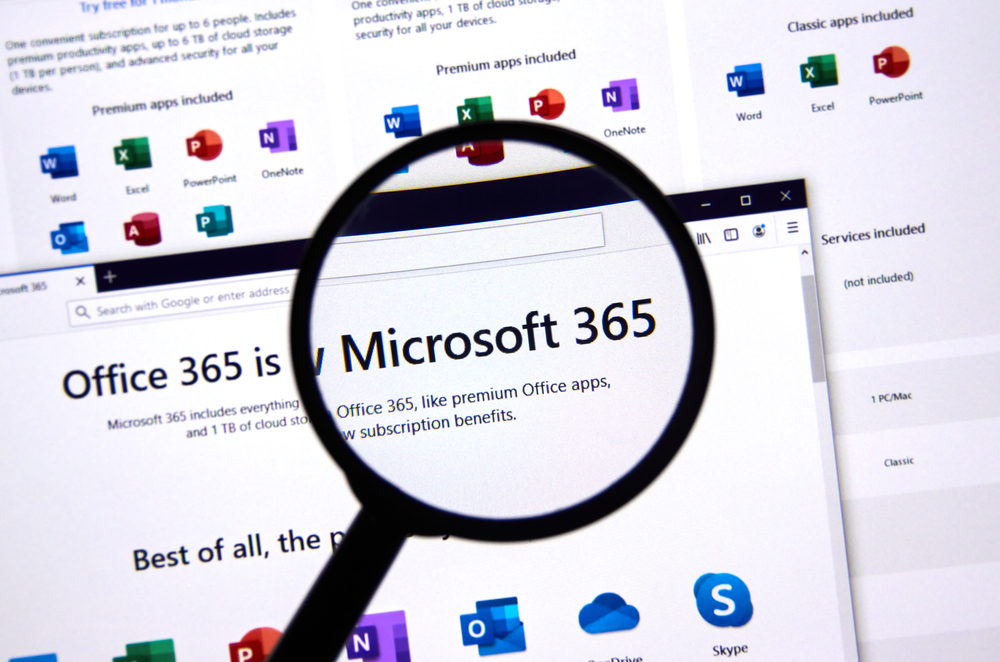Learn why it is essential to protect your Microsoft 365 data and how a reliable backup, like Microsoft 365 Backup, can safeguard your email and OneDrive data.
Why Microsoft 365 data backup is crucial
In today's digital age, data is the lifeblood of businesses. Microsoft 365 has become a popular choice for organizations to manage their email and OneDrive data. However, many companies overlook the importance of having a backup solution in place for this critical data. Without a reliable backup solution, businesses are at risk of losing valuable information when employees leave the organization.

When an employee departs, their Microsoft 365 data, including emails and files stored in OneDrive, could be permanently lost if not properly backed up. This loss of data can have serious consequences for a company, such as the inability to retrieve important client communications, project files, or legal documentation.
Additionally, data loss can occur due to accidental deletion, software errors, or cyberattacks. Relying solely on Microsoft's native data retention policies is not enough to ensure the safety and recoverability of your data. A comprehensive backup solution is crucial to mitigate these risks and protect your business from potential data disasters.
The risks of not having a backup solution
Not having a backup solution for your Microsoft 365 data exposes your business to several risks. Firstly, the loss of critical data can lead to operational disruptions and financial losses. Without access to essential files and emails, employees may struggle to perform their duties effectively and efficiently.
Moreover, data loss can have severe legal and compliance implications. Many industries have strict data retention and privacy regulations, such as the General Data Protection Regulation (GDPR) in Europe. Failing to comply with these regulations can result in hefty fines and damage to your business's reputation.
Lastly, data loss can negatively impact your business's ability to recover from cyberattacks. Ransomware attacks, for example, can encrypt or delete your Microsoft 365 data, making it impossible to restore without a backup. Having a backup solution in place ensures that you can quickly recover from such attacks and minimize the potential damage.
Benefits of using a reliable backup solution
Implementing a reliable backup solution for your Microsoft 365 data offers several benefits. Firstly, it provides peace of mind knowing that your critical data is protected and recoverable. Even in the event of accidental deletion, hardware failures, or cyberattacks, you can easily restore your data and resume normal business operations.
A backup solution also enables efficient data management. It allows you to easily search, retrieve, and restore specific emails or files, saving you time and effort. Additionally, it provides granular recovery options, allowing you to restore individual items instead of entire mailboxes or OneDrive accounts.
Furthermore, having a backup solution in place ensures compliance with data retention regulations. By retaining and securing your Microsoft 365 data, you can meet legal requirements and protect sensitive customer information.
Lastly, a reliable backup solution provides scalability and flexibility. As your business grows and your data volume increases, a backup solution can adapt to accommodate your changing needs without any disruption.
Features to consider when choosing a backup solution
When selecting a backup solution for your Microsoft 365 data, there are several important features to consider. Firstly, ensure that the solution offers automated and regular backups. This ensures that your data is consistently protected without manual intervention.
Another crucial feature is comprehensive data recovery options. Look for a backup solution that allows for granular recovery, enabling you to restore individual emails, files, or folders as needed. This flexibility ensures efficient data management and minimizes downtime.
Data security is also paramount. Choose a backup solution that encrypts your data both in transit and at rest, ensuring that it remains secure and protected from unauthorized access.
Additionally, consider the scalability and ease of use of the backup solution. It should be able to handle your growing data volume and integrate seamlessly with your existing Microsoft 365 environment. User-friendly interfaces and intuitive management tools will simplify the backup process and reduce the learning curve for your IT team.
How to implement a backup solution for Microsoft 365
Implementing a backup solution for your Microsoft 365 data requires careful planning and execution. Here are the steps to follow:
- Assess your data backup needs: Identify the critical data that needs to be backed up, including email accounts, OneDrive files, and SharePoint sites.
- Research backup solutions: Explore different backup solutions available in the market and evaluate their features, pricing, and customer reviews. Look for a solution that meets your specific business requirements.
- Choose a reliable backup solution: Select a backup solution that offers automated backups, granular recovery options, data security measures, and scalability.
- Configure the backup solution: Once you have chosen a backup solution, follow the vendor's instructions to set up and configure the solution according to your needs.
- Test the backup and recovery process: Before fully relying on the backup solution, perform test backups and recovery to ensure that the process works smoothly and meets your expectations.
- Train your employees: Educate your employees about the backup solution and the importance of data protection. Provide them with guidelines on how to restore their data if needed.
- Monitor and maintain the backup solution: Regularly monitor the backup solution to ensure its proper functioning. Perform periodic backups and verify the integrity of the backed-up data.
By following these steps, you can successfully implement a backup solution for your Microsoft 365 data and safeguard it from potential data loss.
Contact our team at CloudServus today and let us help you with any IT issues you may be facing in your organization.







